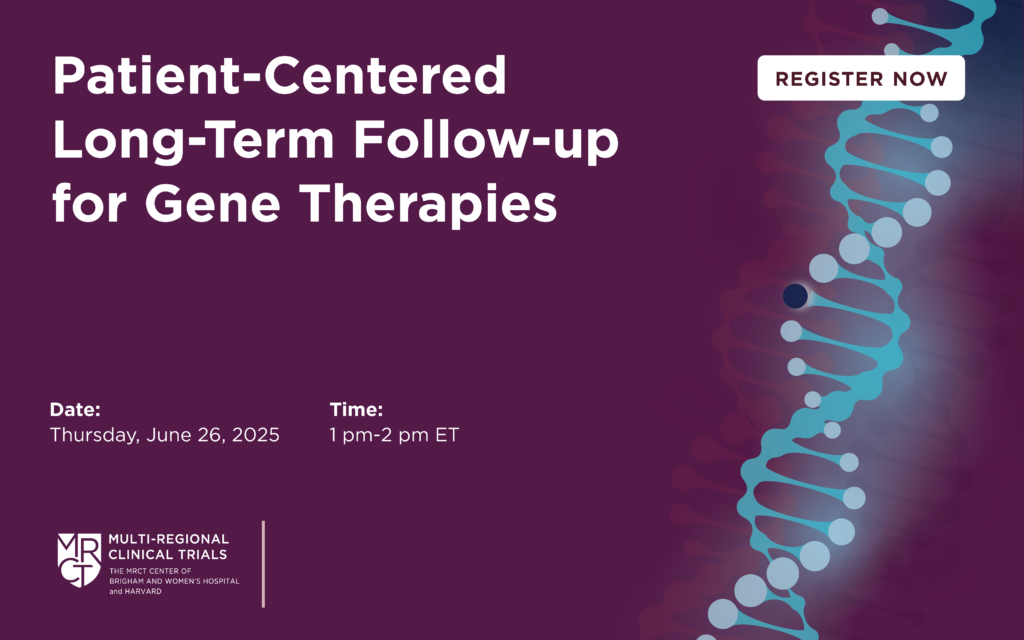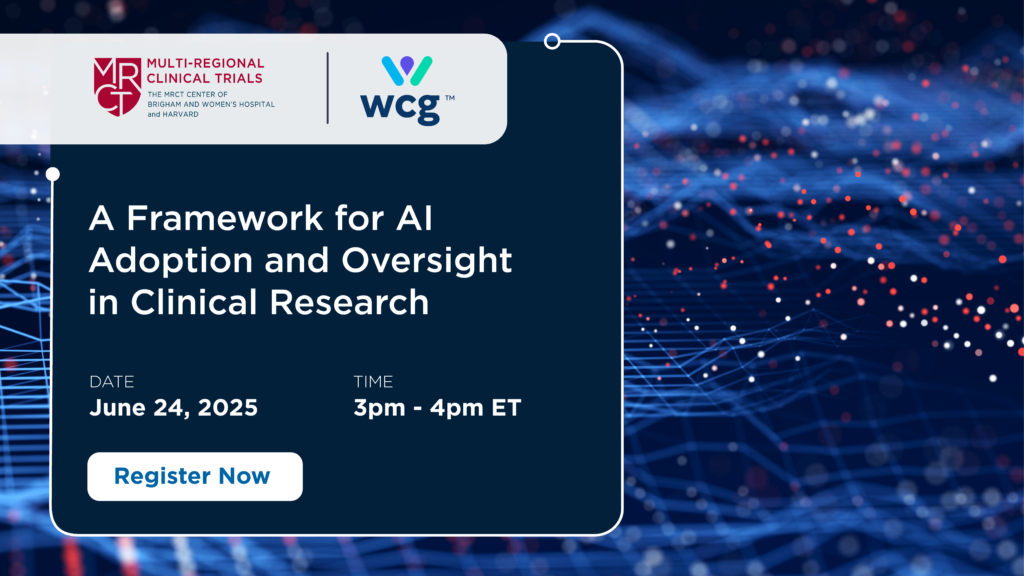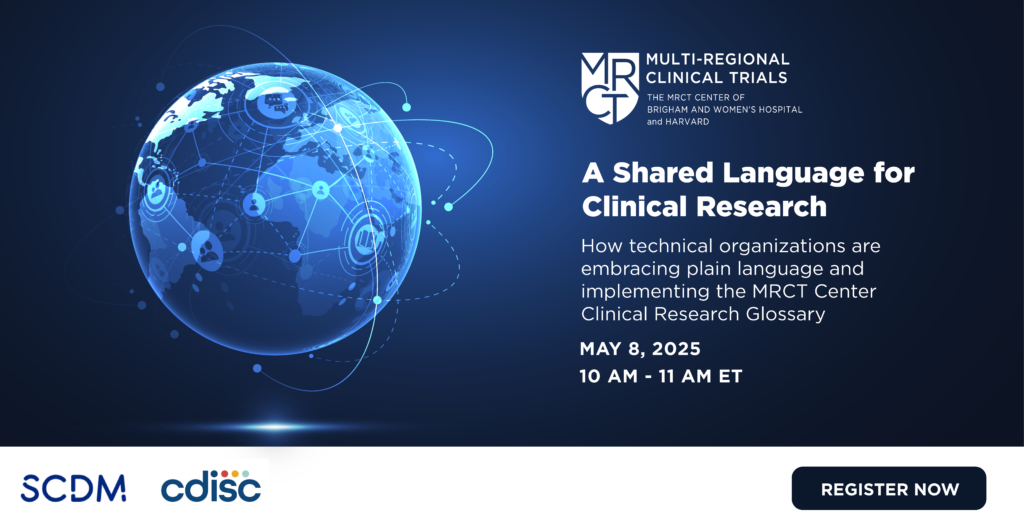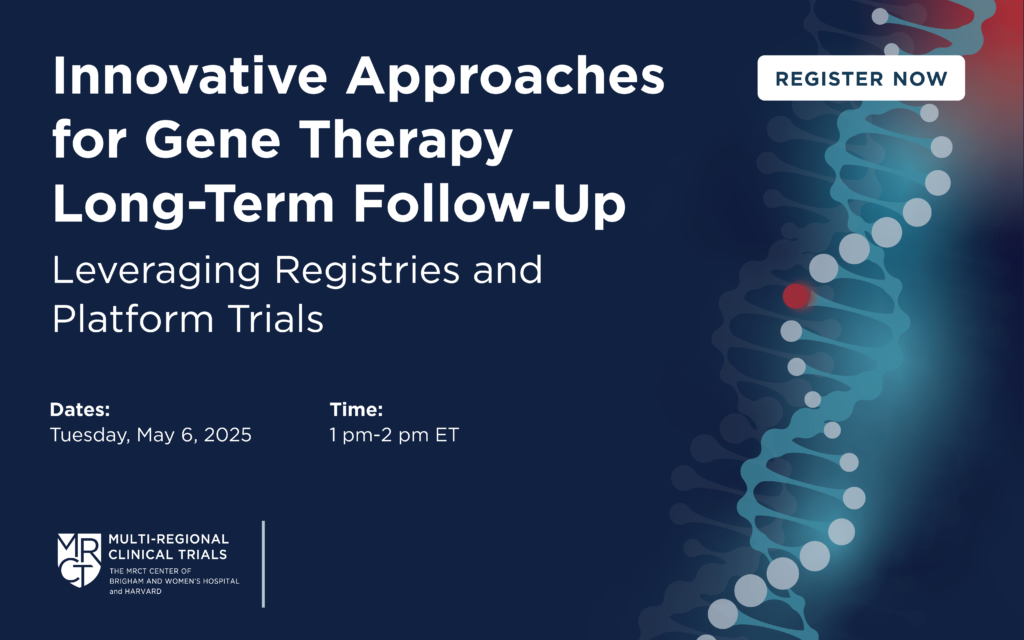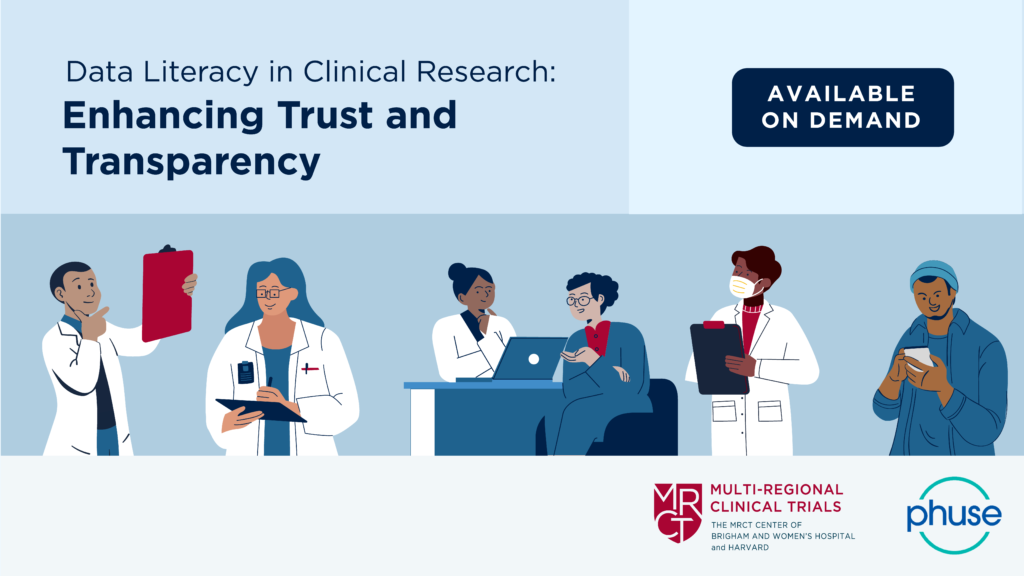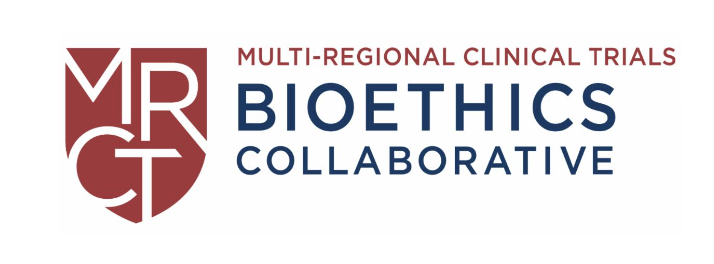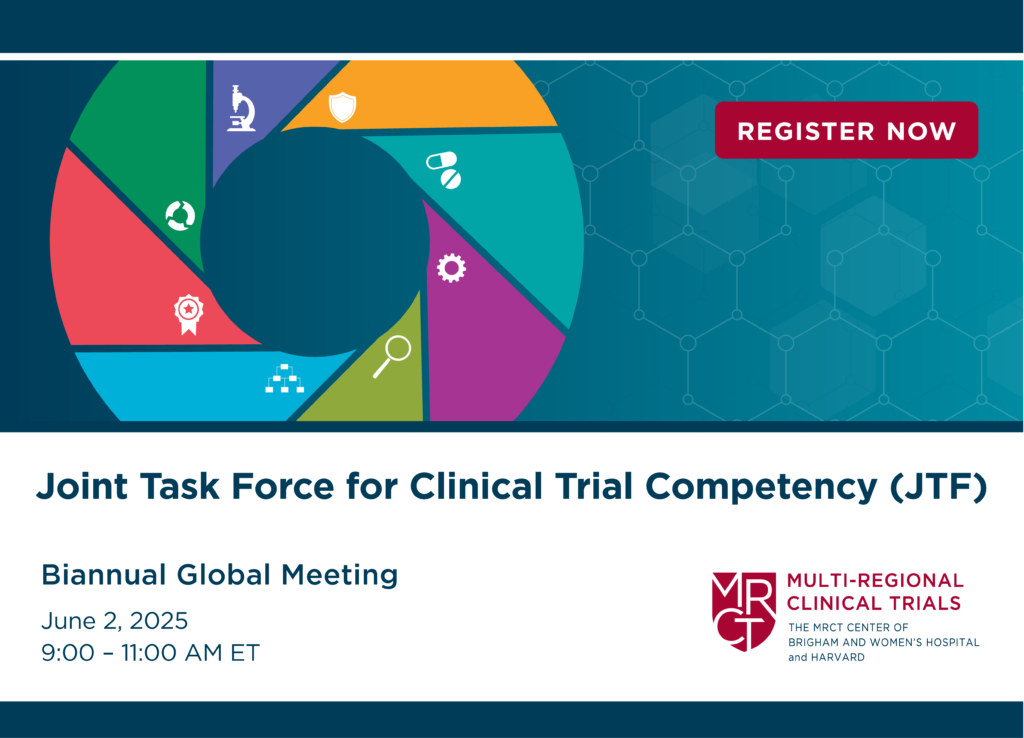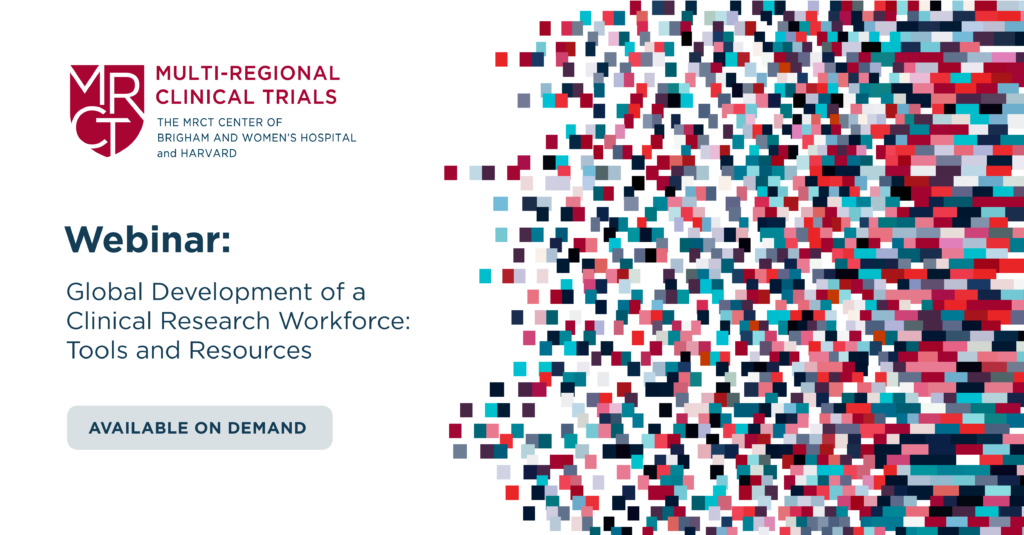June 24, 2025 @ 12:00 pm – 1:00 pm
Presented on: June 24, 2025
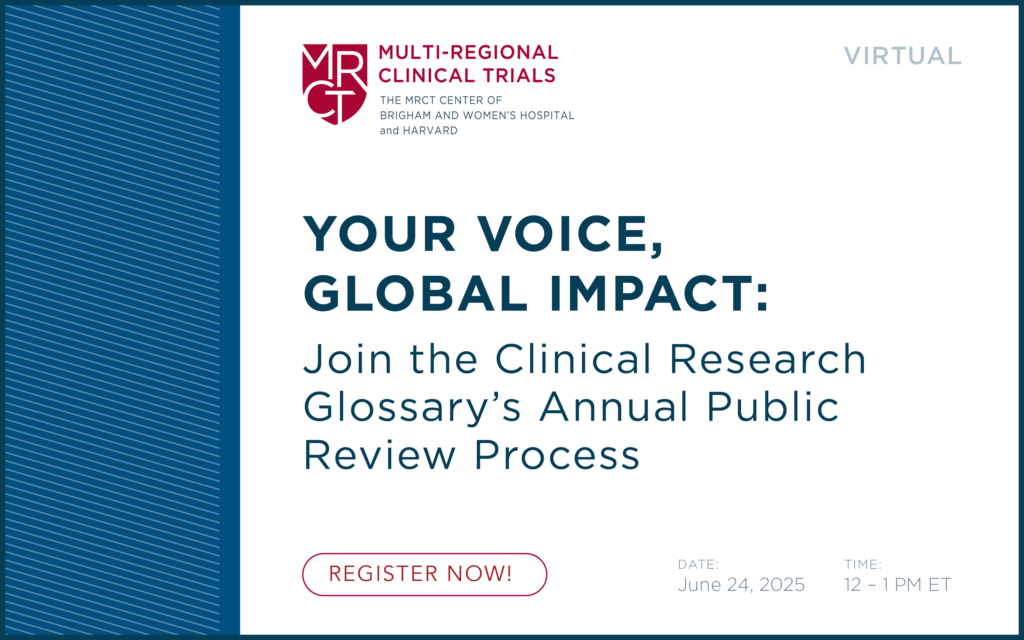
Join us on June 24 from 12 – 1 PM ET to learn about the MRCT Center’s Clinical Research Glossary, a collaboratively developed plain language resource designed to enhance understanding of clinical research terminology. Discover how you can participate in the annual Public Review—an essential step toward making these terms a CDISC global standard. Your involvement ensures the glossary remains accurate, inclusive, and effective for informed decision-making in clinical research.
Key Topics:
- Why your voice matters in Public Review
- How to easily participate and submit feedback
- The role of Public Review in shaping global clinical research standards
- The terms and definitions going through Public Review
Related Resources
The Clinical Research Glossary: Learn More
The Clinical Research Glossary: Working Group
Implementing the Clinical Research Glossary: How to Attribute the MRCT Center
On-Demand Webinar: The Clinical Research Glossary: New Words, New Opportunities
On-Demand Webinar: A Global Standard for Plain Language in Clinical Research: an MRCT Center and CDISC Collaboration

